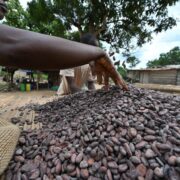
• African Telecommunications Union receives ICANN funding to support IPv6 rollout
• IPv6 offers scalable solutions for growing internet and device connectivity in Africa
• Adoption remains low, with only 4.46% of traffic on IPv6 across the continent as of May 2025
The African Telecommunications Union (ATU) has secured a grant from the Internet Corporation for Assigned Names and Numbers (ICANN) to accelerate Africa’s transition from Internet Protocol version 4 (IPv4) to version 6 (IPv6). The upgrade is intended to meet the growing demand for internet connectivity and accommodate the rising number of connected devices across the continent.
The transition comes as the stock of IPv4 addresses, ssssslimited to 4.3 billion, has been depleted since 2011. IPv6, launched to replace IPv4, can generate an estimated 340 trillion trillion unique addresses, offering a long-term solution to support digital expansion.
In sub-Saharan Africa, mobile internet subscribers reached 320 million in 2023 and are projected to grow to 528 million by 2030, according to GSMA. Despite this growth, penetration is expected to hover around 37%, leaving nearly 900 million people unconnected. The number of licensed connected devices is also forecast to rise from 27 million in 2023 to 51 million by 2030.
To guide this transition, the ATU has developed a strategic framework to assist member countries in implementing IPv6. The framework also aims to raise awareness of the protocol’s role in strengthening digital infrastructure.
However, IPv6 adoption remains limited. According to the ATU’s Africa IPv6 Development White Paper (2022), the adoption rate stood at just 1.36%. By May 2025, the Asia-Pacific Network Information Center (APNIC) reported a modest increase to 4.46%, compared to about 40% globally.
A few African countries have made notable progress. Congo, Gabon, Tunisia, and Kenya have adoption rates above 20%. They are followed by Senegal, Togo, Rwanda, Angola, South Sudan, Burkina Faso, and Zimbabwe, where usage continues to grow.










Comments